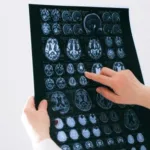
The increase in life expectancy entails a series of losses in terms of skills and abilities, memory being one of the most affected among elderly people and the perception of their own difficulties usually causes them discomfort and dissatisfaction.
Now, it is currently known that the brain is plastic, which allows it to adapt to changes throughout life and, in turn, allows human beings to continue storing new knowledge even at advanced ages. This is possible thanks to training performing exercises to train memory at an advanced agealways keeping the mind active.
In this article we will briefly explain a series of exercises that will be used to train it, being especially focused on elderly people.
Exercises to train memory in the elderly
Below we will explain what some of the exercises consist of to train memory at an advanced age, which are also useful for younger people, serving to prevent cognitive deterioration.
1. Make exercise notebooks
There are many workbooks that serve for cognitive stimulation in order to prevent cognitive declinewhich are very useful so that older people can maintain a regular routine that allows them to keep their brain and memory active in their own home, without having to go to any specialized center (for example, math exercises, reading comprehension , synonyms and antonyms, explaining the meaning of a series of words, classifying words by categories, completing sentences, matching words with their definition, etc.).
This would be highly recommended for those people who do not have severe cognitive impairment that requires professional supervision, although it can also be done as a complement to treatment by those who need specialized supervision because they present significant signs of cognitive impairment.
Besides, These types of notebooks are usually classified by different levelsas the example of the following classification, this classification may vary between the different publishers:
Likewise, when the elderly person performs these exercises It is advisable that they be accompanied by a family member or someone who is in charge of their care so that they can supervise the exercisesjust as it is also recommended that you turn this practice into a daily habit and try to establish a schedule to always do them at the same time, always in a quiet place, so that you get used to having control and organization in your daily life. , which can be very beneficial for your memory.

2. Write in a journal
This is another of the exercises to train memory at an advanced age and It involves the elderly person writing in the most detailed way possible a series of important events that they have experienced and that have marked them.both for better and for worse, because all these events are memories that allow the person to give continuity to the personal story they have lived.
In addition, this diary can help that person go to it and remember some moments, which is a tool that they can use at certain times when they forget some detail of their past, so that the loss is slowed down. memory in addition to being able to facilitate the memory of moments of happiness that you have experienced long ago.
And reminding yourself of who you have been and, therefore, continue to be, could be a good resource for people with any type of dementia. can recover memory as much as possible, in this case episodic.
On the other hand, writing a diary can help organize episodic memory, related to events experienced throughout life, while keeping the brain active.
3. Interactive online exercises
One of the advantages that technological advances give us is the possibility of accessing a series of virtual platforms that have been developed for cognitive stimulationwith exercises focused on people of all ages and with any educational level, with exercises to train various cognitive abilities (for example, attention, language, reasoning or memory).
Among all of them, we are going to highlight those platforms that are focused on exercises to train memory at an advanced age, with very diverse exercises focused on stimulate all brain areas that are involved in cognitive decline, such as memory loss.
Of course, it is advisable that they have the help of a professional, a family member or a caregiver, since the most normal thing is that they need help to access these platforms.
You can find all kinds of platforms of this style in any internet search engine. Likewise, in the digital age in which we live, there are also multiple games for computers, tablets and mobile phones that are used to perform cognitive training exercises, where different mental skills can be worked on, such as memory.
These games are designed so that people learn to use them in an intuitive way without having to learn an instruction manual; However, from a certain age it is likely that they will need the help of a family member or caregiver to help them access these types of games and teach them how to use them.
4. Story recall exercises
The objective of this exercise is for the person to organize the information received about a short story based on a temporal sequence.
For example, the story of a person is told without reference to the key words that denote the temporal sequence that has elapsed.
Afterwards, the same story is recited again, but this second time the key words related to the temporal sequence that elapsed throughout the story are highlighted (e.g., at the time of getting up, at the time of eating, at sunset , before going to sleep).
The person is then asked to tell what they remember about the story and the details that occurred around those key temporal moments that were highlighted when telling the story.
This exercise serves to highlight the importance of temporally ordering a story to facilitate its memorybeing a great tool to remember events and news.
- Related article: “Types of memory: how does the human brain store memories?”
5. Word list recall exercises
This is one of the exercises to train memory at an advanced age, focused on people who do not have pronounced cognitive impairment.
The exercise consists of presenting the person with a list of 16 random words that they must memorize. But to do this, the person is taught a series of steps that make it easier to memorize it.
The first consists of ask you to sort the words into categories of words that have similar characteristics (for example, animals on one hand, plants on the other, etc.), which they can write down on a sheet of paper.
The second step is to memorize each of the groups of words separately.
Next they must try to recite the 16 words. The most common thing is that they recite them together with the other words that they rated in the same group, since reciting them in the initial order would be more complicated. But the objective of this exercise is for them to realize that organization helps in learning and is a good memory resource.
- You may be interested: “Hermann Ebbinghaus: biography of this German psychologist and philosopher”
6. Organization exercises and spatial references
Another exercise to train memory at an advanced age consists of use spatial references in an organized way.
For example, when we try to remember a piece of news that we read a few days ago in the newspaper, it is possible that it helps us to remember it if the news section in which it was found or the part of the story comes to mind. sheet on which that information was found.
Another example may be that a teacher uses to memorize the name of his students, asking them to sit at the same desk every day, since it has been proven that keeping our environment organized helps us memorize certain details and at the same time minimize forgetfulness. (e.g., having the closet in our room organized to easily find a certain item of clothing while minimizing the risk of “losing” it).
And practicing exercises that stimulate our spatial memory reinforces our ability to establish references and also spatial associations. This spatial memory is what allows people to register in memory and also retrieve information related to the location of a person or an object and also about the occurrence of an event.
A very useful exercise to practice spatial memory with older people is to put a set of index cards face down on a table. Each of those tiles is repeated so that there is a set of pairs of tiles. Then, in each attempt, when it is their turn, the person must turn over two pieces with the aim of uncovering a pair of pieces at the same time. If you cannot uncover the pair, you must turn the tiles over again and try to memorize where each tile is located so that you can uncover the pair when you manage to locate it in future attempts.
- Related article: “Spatial intelligence: what is it and how can it be improved?”
7. Visualization exercises
Another exercise to train memory at an advanced age is the use of visual images, since they are a good tool to remember certain things. And if we generate visual images associated with certain information that we intend to remember, we will be able to access that information more easily and, in turn, improve the performance of our memory, because Visual memory allows us to evoke in our memory the information that is associated with that image.
For example, if a granddaughter wants her grandmother to meet her new partner, telling her what her name is, what she works for, where she grew up, etc., she is more likely to remember that person if she also shows her a photo of your boyfriend, so you can memorize what he looks like and retain the image of his face. So CEvery time you tell her something new about your boyfriend, you’re more likely to remember him if an image of his face comes to mind..
This exercise can be very useful for elderly people to remember deceased relatives or relatives who live far away and whom they cannot see regularly so that they do not forget them.
8. Places method to remember day-to-day tasks
This exercise serves to remember a series of errands that an elderly person must carry out in their daily life in order to remain as independent as possible. To do this, internal and external strategies must be used.
Internal strategies
Mental repetition of the different tasks that must be performeddividing them in chronological order (morning, afternoon and night).
You should try to associate a visual place with each of the tasks (for example, associating the fact of arriving at the kitchen in the morning with having to prepare breakfast and take the pills that the doctor has prescribed).
External strategies
It may be helpful to make a list of tasks you need to complete.. You can also place some signs in strategic places where you can be sure that you will read them when necessary so that you don’t forget to do something important (e.g., place a sign in the kitchen that reminds you which pills you should take now). hours that each of them should take, or place a sign on the front door reminding them to always leave the house with a mobile phone, wallet and house keys).
These are some of the many strategies used through exercises to train memory at an advanced age.








